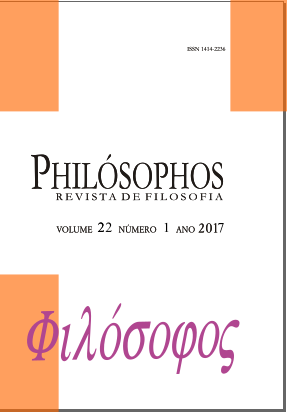FROM MYTHICAL FOUNDATION TO THE EXERCISE OF POPULAR SOVEREIGNTY: HOW TO UNITE WILL AND UNDERSTANDING?
DOI:
https://doi.org/10.5216/phi.v22i1.40283Keywords:
Rousseau, Lawgiver, religion, sovereignty.Abstract
Political “founding myths” are a recurring theme in many thinkers, from Plato to Rousseau, including Machiavelli and Hobbes. In The Social Contract, Rousseau handles it in the chapter on the Lawgiver, showing that when Moses or Muhammad have given laws to their peoples, they haven’t called them to deliberate rationally about the adequacy of their proposals to public good, since it was impossible for these incipient nations to do reflections of this kind, because they lacked the understanding and social spirit that would allow them to discern the value of this legislation. Thus, the Lawgiver had to persuade people without convincing them, invoking the one valid argument for their ears: divine authority. These ideas pose a crucial problem concerning to other aspects of Rousseau’s thought. For him, the laws are valid only when approved by sovereign people’s will. However, one can ask, as does Hilail Gildin: “Can a society based on a code which a people has been duped into accepting because they believe it to express the divine will, and which a people would not dare to modify for that very reason, be a society in which the people regards itself as the only legitimate source of law?”Downloads
Downloads
Published
How to Cite
Issue
Section
License
Authors who publish in this journal agree to the following terms:
- Authors retain copyright and grant the journal right of first publication, with the work simultaneously licensed under a Creative Commons Attribution License that allows others to share the work with an acknowledgement of the work's authorship and initial publication in this journal.
- Authors are authorized to enter into separate, additional contractual arrangements for the non-exclusive distribution of the journal's published version of the work (e.g., publishing in an institutional repository or as a book chapter), with an acknowledgement of its authorship and initial publication in this journal.















